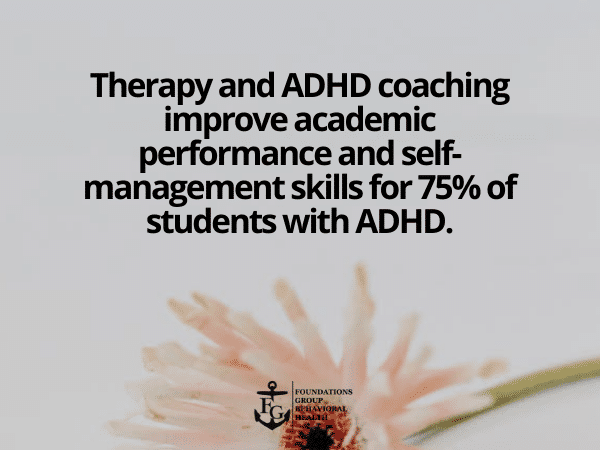Attention-deficit/hyperactivity disorder (ADHD) affects millions of people worldwide, and its challenges extend far beyond childhood. For young adults entering college, managing ADHD can be particularly difficult due to the increased academic demands, lack of structured support, and the need for self-regulation. Students with ADHD often struggle with time management, staying organized, and maintaining focus, making it harder to succeed in their studies.
However, with the right strategies, tools, and professional support, students with ADHD can thrive in college. At Foundations Group Behavioral Health, we offer specialized treatment programs, including ADHD Treatment Programs, Psychiatric Day Treatment, Half-Day Treatment Programs, and Outpatient Mental Health Programs, to help students develop skills that enhance their academic performance and overall well-being.
Understanding ADHD in College Students
ADHD is a neurodevelopmental disorder that affects executive functioning, which includes skills such as organization, attention, impulse control, and time management. While the symptoms of ADHD vary, some of the most common challenges that college students face include:
Academic Challenges
- Trouble concentrating in lectures and while studying.
- Difficulty following long or complex instructions.
- Forgetting assignments, deadlines, or exam dates.
- Procrastinating on tasks, leading to last-minute cramming.
- Struggling with time management and prioritization.
Social and Emotional Challenges
- Difficulty maintaining friendships due to impulsivity or distractibility.
- Increased feelings of frustration, anxiety, or stress.
- Trouble adapting to new environments and expectations.
- Heightened emotional responses to setbacks or criticism.
Daily Life Management Challenges
- Forgetting important responsibilities such as paying bills or attending appointments.
- Trouble maintaining a consistent sleep schedule.
- Difficulty balancing academic, social, and self-care responsibilities.
Given these challenges, it is crucial for students with ADHD to develop structured coping strategies and seek support when needed.
Why ADHD Becomes More Difficult to Manage in College
The transition from high school to college can be overwhelming for students with ADHD. Several factors contribute to the increased difficulty of managing symptoms in college:
1. Increased Independence
High school students often have external structures in place, such as teachers, parents, and school counselors, who help them stay organized and accountable. In college, students are expected to manage their schedules independently, which can be difficult for those with ADHD.
2. More Complex Academic Demands
College coursework typically requires extensive reading, independent research, and time-consuming projects. ADHD can make it harder for students to focus, retain information, and meet deadlines.
3. Less External Supervision
Without parents or teachers checking in daily, students must take personal responsibility for keeping track of assignments, exams, and obligations.
4. Social and Emotional Stressors
Many students with ADHD also struggle with co-occurring mental health conditions, such as anxiety or depression. The pressure to succeed, manage relationships, and navigate new environments can heighten stress levels, increasing the likelihood of burnout or academic struggles.
5. Distractions and Procrastination
The college environment is filled with distractions, from social events to digital entertainment. Students with ADHD may find it particularly difficult to resist these distractions and focus on their academic responsibilities.
Effective Strategies for Managing ADHD in College
While ADHD presents unique challenges, there are many strategies that can help students navigate their college experience successfully.
1. Create a Structured Daily Routine
Having a structured daily routine helps students stay organized and manage their time effectively.
- Use a planner or digital calendar to track deadlines, class schedules, and responsibilities.
- Set up daily reminders and alarms to ensure important tasks are not forgotten.
- Break large assignments into smaller, manageable tasks to prevent overwhelm.
2. Use Campus Resources for ADHD Support
Many colleges offer accommodations and resources for students with ADHD. These services can include:
- Extended time on tests and assignments.
- Access to distraction-free testing environments.
- Assistance with note-taking, tutoring, or recorded lectures.
- ADHD coaching and counseling services.
Students should register with their school’s disability services office as early as possible to take advantage of these accommodations.
3. Develop Effective Study Habits
Finding the right study techniques can improve concentration and academic performance.
- Choose the right environment – Study in quiet, distraction-free areas like the library.
- Use the Pomodoro Technique – Study for 25 minutes, then take a 5-minute break.
- Try active learning methods – Summarize notes aloud, create flashcards, or teach the material to a peer.
- Use assistive technology – Apps like Evernote, Todo list, and Google Keep help with organization and task management.
4. Learn to Manage Impulsivity and Emotional Regulation
ADHD can make it difficult to regulate emotions and impulses. Strategies to improve self-control include:
- Practicing mindfulness techniques to increase focus and reduce impulsivity.
- Using grounding exercises like deep breathing to manage stress.
- Attending therapy through an Outpatient Mental Health Program to develop coping mechanisms.
5. Maintain Physical and Mental Health
Taking care of physical and mental health can improve focus, energy levels, and emotional stability.
- Exercise regularly – Physical activity improves mood and cognitive function.
- Prioritize sleep – Lack of sleep worsens ADHD symptoms, so establish a consistent sleep schedule.
- Follow a balanced diet – Eating nutritious foods can help regulate energy levels and concentration.
6. Seek Professional ADHD Treatment
For many students, professional support is essential in managing ADHD symptoms. Treatment options may include:
- Cognitive Behavioral Therapy (CBT) – Helps students develop strategies to manage ADHD-related challenges.
- Medication Management – Stimulant and non-stimulant medications can help improve focus and impulse control.
- Behavioral Coaching – Teaches practical skills for time management, organization, and productivity.
At Foundations Group Behavioral Health, our ADHD Treatment Program provides evidence-based interventions tailored to each individual’s needs.

How Foundations Group Behavioral Health Can Help
Students with ADHD may benefit from professional support beyond what their college provides. Foundations Group Behavioral Health offers specialized programs to help students manage ADHD while balancing academic and personal responsibilities.
1. Psychiatric Day Treatment
For students needing intensive, structured support, our Psychiatric Day Treatment program offers:
- Comprehensive ADHD assessments.
- Individual and group therapy.
- Medication evaluation and management.
2. Half-Day Treatment Program
For students who require treatment while maintaining college coursework, our Half-Day Treatment Program includes:
- ADHD coaching and skill-building strategies.
- Therapy for managing anxiety, stress, and executive functioning.
- Peer support to navigate college life successfully.
3. Outpatient Mental Health Program
Our Outpatient Mental Health Program is ideal for students needing flexible, ongoing support, offering:
- Weekly therapy sessions to develop coping mechanisms.
- Medication-assisted treatment (if needed).
- ADHD-friendly study and organization techniques.
4. Co-Occurring Disorder Treatment Program
Many individuals with ADHD also experience anxiety or depression. Our Co-Occurring Disorder Treatment Program provides integrated care for multiple conditions to ensure holistic support.
Take Control of ADHD and Succeed in College
ADHD may present challenges, but with structured strategies, professional support, and access to resources, students can achieve academic success and personal growth.
At Foundations Group Behavioral Health, we offer comprehensive ADHD Treatment Programs, Psychiatric Day Treatment, Half-Day Treatment Programs, and Outpatient Mental Health Programs designed to support students as they navigate their college experience.
If you or a loved one is struggling with ADHD in college, contact us today at 888.685.9730 to learn more about our specialized treatment options. With the right tools, success in college is absolutely possible.
FAQ on ADHD Affect College Students
How does ADHD affect college students?
ADHD can make it difficult for college students to focus, manage time, stay organized, and complete assignments on schedule. It can also impact social interactions and emotional regulation.
What are the biggest challenges for college students with ADHD?
Common challenges include poor time management, difficulty concentrating during lectures, procrastination, impulsive decision-making, trouble balancing responsibilities, and increased academic pressure.
What strategies help students with ADHD succeed in college?
Effective strategies include using planners and digital reminders, breaking tasks into smaller steps, studying in distraction-free environments, developing consistent routines, and utilizing ADHD-friendly study methods.
What campus resources are available for students with ADHD?
Most colleges offer accommodations such as extended test time, note-taking assistance, ADHD coaching, and access to mental health counseling through the campus disability services office.
How can therapy help students with ADHD?
Therapy, such as Cognitive Behavioral Therapy (CBT), helps students develop coping skills, improve focus, manage emotions, and address co-occurring conditions like anxiety or depression.
Can medication help manage ADHD symptoms in college?
Yes, stimulant and non-stimulant medications can improve focus, impulse control, and executive functioning. However, they should be prescribed and monitored by a medical professional.








